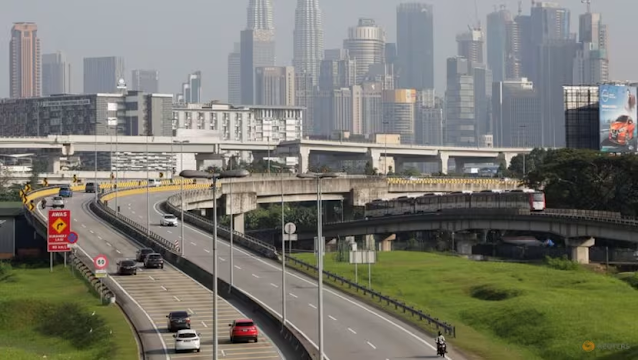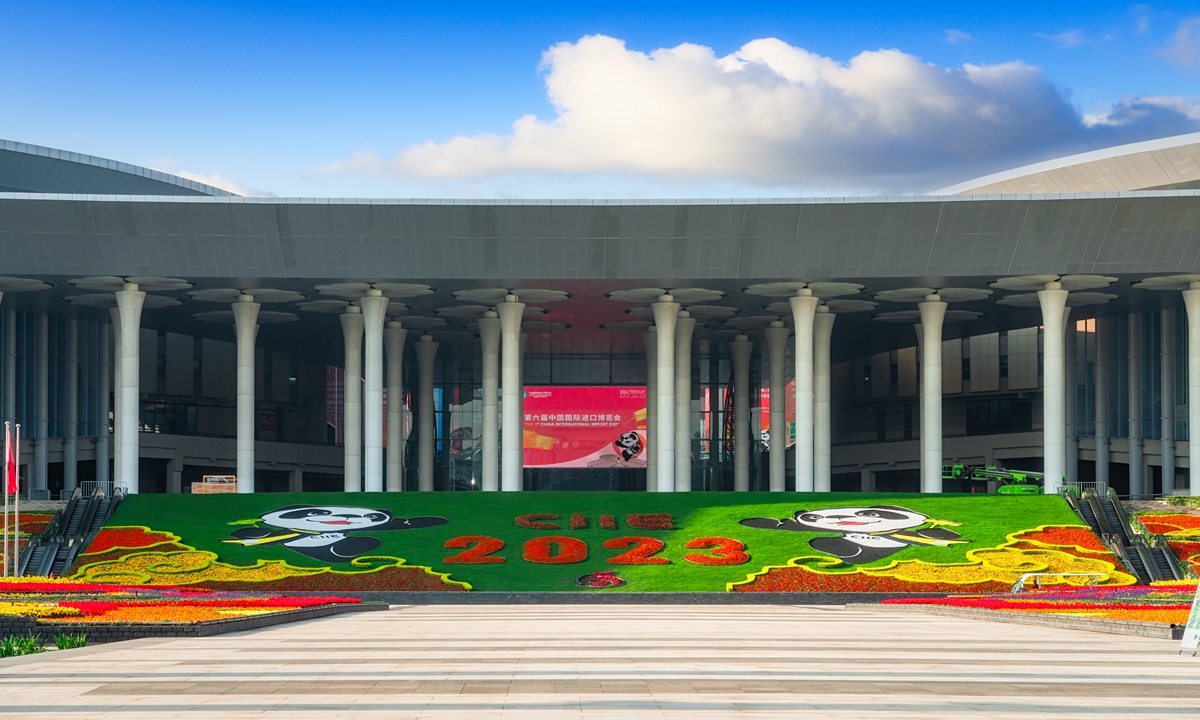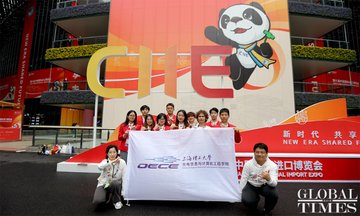PM Launches Malaysia’s 4th Industrial Master Plan
IT is a pivotal moment for Malaysia’s industrial development.
Malaysia’s manufacturing sector has to accelerate the Fourth Industrial Revolution, taking advantage of smart technologies to move its production base up the value chain while conforming to environmental, social and governance and meeting net-zero target.
Amid increasing geo-economic complexity and the escalating impact of climate change, Malaysia needs a new generation of sustainable industrial transformation to lever up the economy to sustain resilient and competitive advantage internationally.
The manufacturing sector remains one of the primary engines of growth (2022: 24.1% of gross domestic product or GDP: 84.2% of total exports and 16.8% of total employment) and had expanded at steady rate of 4.8% per annum in 2015-2022 (4.9% per annum in 2011-2015).
The New Industrial Master Plan (NIMP) targets to increase the manufacturing sector’s value-added by 6.5% per annum to RM587.5bil by 2030 (RM364.1bil in 2022); employment growth of 2.3% per annum to 3.3 million in 2023 (2022: 2.7 million persons); while median salary will increase by 9.6% per annum to RM4,510 in 2030 (2021: RM1,976).
The country has prematurely deindustrialised since early 2000s, mainly due to increased global competition and slow progress in moving up the value chain.
Malaysia’s Economic Complexity Index ranking (24th in 2021), which indicates the productive capability of an economy, was lagging behind advanced economies (first for Japan, fourth for South Korea and sixth for Singapore); other developing regional peers are fast catching up (29th for Thailand); and labour productivity growth has moderated and stagnated (2.3% per annum in 2013-2022).
Our regional peers are receiving more foreign direct investment (FDI) inflows in recent years.
During the period 2017-2022, Malaysia registered FDI inflows of US$9.4bil per year compared to US$96.4bil per year for Singapore, US$20.9bil per year for Indonesia and US$15.8bil per year for Vietnam.
The Philippines is catching up fast (US$9.2bil per year) while Thailand’s FDI has dwindled to US$7.1bil per year.
The NIMP 2030 sets the breakthrough agenda for Malaysia’s manufacturing sector’s next take-off in the new green industrial age.
The NIMP maps out a comprehensive industrial direction, strategies and enablers with the aim of positioning Malaysia for new growth catalytic sectors and industries in the decades ahead.
The NIMP 2030 calls for a “Whole-of-Nation” approach and adopts a mission-based approach to drive the manufacturing transformation in four ways:
> Advancing economic complexity,
> Tech-up for a digitally vibrant nation,
> Pushing for the net-zero target, and
> Safeguarding economic security and inclusivity.
The master plan will chart a new generation of sustainable industrial policies, underpinned by four enablers, 20 strategies and 56 action plans.
Domestic manufacturing industries have to strengthen their resilience and competitiveness to counter operational challenges caused by geo-economic conflicts that disrupt supply chains, resource scarcity that threatens energy and utilities security, and adverse climate change disruptions.
The identified five pivotal sectors are:
> Electrical products and electronics,
> Chemical and chemical products,
> Advanced materials,
> Aerospace, and
> Healthcare (including medical devices and pharmaceuticals).
All industries will be driven strategically to embrace these four missions for reconstructing and developing a solid and sustainable manufacturing sector and also for exporting resilience.
The services sector must also move up the value chain to support the manufacturing sector.
While the lead agencies and parties involved were identified to implement the mission-based projects, accountability and responsibility are therefore critical to ensuring a successful implementation of the mission-based projects.
We need a strong accountability to ensure alignment and coordination among the stakeholders and parties to clearly define the project scope and deliverable.
Roles and responsibilities across ministries on investment issues tend to be unclear and sometimes lack co-ordination.
Hence, an effective implementation of a one-stop centre is a crucial investment facilitation mechanism whereby relevant ministries and government agencies are coordinated at a single point to provide prompt, efficient and transparent services to investors to shorten and simplify administrative procedures and guidelines ultimately, thereby removing bottlenecks faced by both local and foreign investors in establishing and running businesses in Malaysia.
Investment climate reforms are necessary. While the government has made efforts on transparency, the rule of law, weeding out corruption and strengthen the quality of institutions, they have not been sufficiently consistent to improve investor confidence and ensure responsible business practices by both foreign and domestic companies.
The government has to bolster collaborations between the federal government, state governments and local authorities to facilitate investment.
We support the Investment, Trade and Industry Ministry’s efforts to streamline the 31 Investment Promotion Agencies, with the Malaysian Investment Development Authority leading the way.
Domestic direct investment (DDI), especially by micro and SMEs (MSMEs), are crucial for supporting industrial ecosystem.
The inclusion of DDI as a key performance indicator is a positive step to facilitate and raise the quality of domestic investment.
MSMEs should be provided with opportunities to gradually scale up their industries through horizontal and vertical integration as well as to embrace green practices.
This necessitates capital investment in advancing technological and digitalisation capabilities, ensuring an ample supply of highly skilled and knowledge-based human capital, and more importantly, access to financing, grant and development fund.
It is estimated that a total of RM95bil will be invested throughout seven years to implement NIMP, predominantly coming from the private sector.
We support the action plans to mobilise the financing ecosystem (financial institutions and capital market), including the introduction of the NIMP Strategic Co-Investment Fund and NIMP Industrial Development Fund to support strategies, action plans and mission-based projects as well as for industries and businesses, especially MSMEs.
However, the NIMP did not provide an estimation of the amount of financing and funds needed to support the industrial transformation.
As SMEs often encounter challenges in accessing financial resources and credit facilities, it is therefore necessary to broaden the range of financing instruments available to SMEs and entrepreneurs, by improving understanding about a full range of financing instruments they can access in varying circumstances, and by encouraging discussions among stakeholders about new approaches and innovative policies for SMEs and entrepreneurship financing.
For SME green facilitation, we proposed:
> The creation of a web-based tool in partnership between the industry associations and environmental regulator to provide free environmental guidance to SMEs; and
> The provision of an ESG assessment toolkit to guide SMEs embark on their ESG journey by identifying gaps in their management system based on the 12 ESG indicators identified.
Manpower and integration with technology is integral for the industrial transformation. Swift action must be taken to review and address the manpower planning and development programmes.
These include the supply of skilled manpower; adaption; and reskilling and upskilling of workers that are future proof, including the hiring of foreign talent to supplement domestic pool of workforce.
The quality assurance of Technical and Vocational Education Training has to be revamped and enhanced.
We support the implementation of the multi-tier levy model to reduce over-dependency on low-skilled foreign workers, but the levy must not be too steep during the transition period as it would be significantly burdening the employment and operating costs of MSMEs.
The implementation of Progressive Wage System on a voluntary basis and incentive-based approach for MSMEs for the skill set categories along with the minimum wage must be productivity-linked.
We support the action plans to drive promotional activities of Free Trade Agreements (FTAs), including the Regional Comprehensive Economic Partnership (RECP) and the Comprehensive and Progressive Agreement for Trans-Pacific Partnership (CPTPP) and export consortia, given the low utilisation rate and awareness among the business community.
We propose:
> The design of a tariff finder to support traders to maximise benefits from the RCEP and CPTPP to help businesses, to get up-to-date information on the preferential tariffs and the rules of origin criteria used to determine a product’s eligibility for preferential tariff treatment, and
> The setting up of a one-stop advisory centre for all FTA-related enquiries from businesses; gather feedback on tariffs and non-tariffs issues for better trade and investment facilitation.
Strategic planning is hard but the real challenge is execution. Without a careful and planned approach to execution, strategic goals cannot be attained.
Hence, we need a pragmatic approach to monitor and track the progress of the proposed action plans and mission-based projects; and make timely interventions and facilitation across collaborations between ministries and agencies as well as provide resolutions to achieve the deliverables.
- Lee Heng Guie is Socio-Economic Research Centre executive director. The views expressed here are the writer’s own.
Source link
NIMP 2030 Sets Breakthrough Agenda For Manufacturing ...
NIMP 2030 poised to attract more investments
PETALING JAYA: The current investing focus on environmental, social and governance (ESG) and sustainability will likely help the New Industrial Master Plan 2030 (NIMP 2030) attract further targeted investments into the country.
The plan also appears to aim to capitalise on the opportunities from the recent shift in investments away from China due to the global trade tensions.
According to CGS-CIMB Research, the NIMP 2030 is a comprehensive plan, noting that the government appears to understand the limitations and hurdles of the current industrial setting such as the reliance on cheap foreign labour and low research and development adoption.
“If this strategy works, ESG-conscious companies could be more interested in investing in Malaysia such as Tesla.
“We also see a new set of industries being emphasised, in particular electric vehicles (EVs) and carbon capture, utilisation and storage, which capitalise on Malaysia’s existing strength and advantages,” CGS-CIMB Research said.
However, it also noticed certain sectors were receiving less emphasis than in previous plans such as biotechnology, although pharmaceutical, a subset of biotechnology, was highlighted in the report.
“A few policy suggestions in the NIMP 2030 are not new, for instance, the multi-tier levy system for foreign workers, which has been delayed, given the pushback by industry players. Hence, successful execution is key,” it said.
“Thus far, the NIMP 2030 certainly improves the long-term prospects for gross domestic product (GDP) growth, but we maintain our 2023 GDP growth forecast at 4% year-on-year and 4.6% in 2024,” the research house added.
Meanwhile, UOB Kay Hian (UOBKH) Research said it believes the electrical and electronics (E&E) industry is poised to be the largest beneficiary of the plan.
“The NIMP 2030 is a catalyst for trade diversion for foreign direct investment, the creation/entrenchment of regional champions, and new emerging industry clusters such as EV and renewable energy (RE),” UOBKH Research said.
It noted the E&E industry, which accounts for some 40% of the country’s exports, is poised to grow further from the NIMP 2030 catalyst.
“The well-strategised plan targets to enhance the sector’s value-add, employment and wage dynamics by deepening the economic complexity of the supply chain, upskilling and support for small and medium enterprises,” UOBKH Research said.
“While we await the granularity of incentives and rollouts, our top manufacturing picks include Cape EMS Bhd, Inari Amertron Bhd and NationGate Holdings Bhd,” UOBKH Research said.
These companies are noted for their alpha growth on strong visibility of better order loadings from their new and key customers from the supply chain reconfiguration amid the trade diversion, it said.
For the outsourced semiconductor assembly and test players, it likes Inari for its strong growth trajectory premised on its new flagship programme, inventory replenishment and the fruition of its new business collaboration.
Other companies such as Greatech Technology Bhd are noted for their solid order-book backlogs with more than 50% exposure to the high-margin EV and RE sectors alongside their unique value proposition while other beneficiaries include packaging company L&P Global Bhd, it said.
Meanwhile, Hong Leong Investment Bank Research said the NIMP 2030 is a positive move, but noted the key to its success will depend on the strong cooperation across multiple key stakeholders that cuts across federal and state governments as well as agencies.
Source link
Related posts
PM: Reshaping of skills, jobs, wages will expand middle class KUALA LUMPUR: High-value job opportunities are among the focuses of t...





















